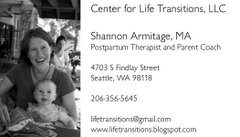Michael Tomasello, co-director of the Max Planck Institute for Evolutionary Anthropology, writes in today's New York Times Sunday Magazine that, when given non-verbal IQ tests, two year-old children and chimpanzees demonstrate similar spatial and mathematical intelligence. Where the toddlers showed the greatest advantage was in their social and emotional intelligence. Humans, through cooperation, can acquire skills and information and then share it with another; apes cannot. Thus, cooperation leads to a collective identity that bonds humans powerfully to one another. It also helps organize us into "camps": "Us" and "Not Us".
This article got me thinking about the socially-inhibiting effects of anxiety. Anxiety would have one believe that each struggle is unique. It says that no one out there can understand what this particular anxiety is like. In actuality, individual messages from anxiety may differ but the overall themes tend to be very similar. Few people I know who suffer from severe anxiety are able to deeply connect with others like them. The social stigma assigned to anxiety stymies the very social sharing that could lead to its ultimate undoing.
So, humans have the capacity to learn from one another. But such communication depends on our willingness to share and our "proximity" to the information. I propose that as humans, our two camps are not "people with anxiety" and "people without", but rather "us" and "anxiety." The internet can potentially solve the "proximity" issue--we no longer need to be physically close to communicate--but we still need to share and teach others what can be learned about anxiety.
How to become "anti-anxiety teachers" is still murky to me. This blog is a start. I hope that you, my dear readers, will share in this endeavor.
Sunday, May 25, 2008
Subscribe to:
Post Comments (Atom)

No comments:
Post a Comment